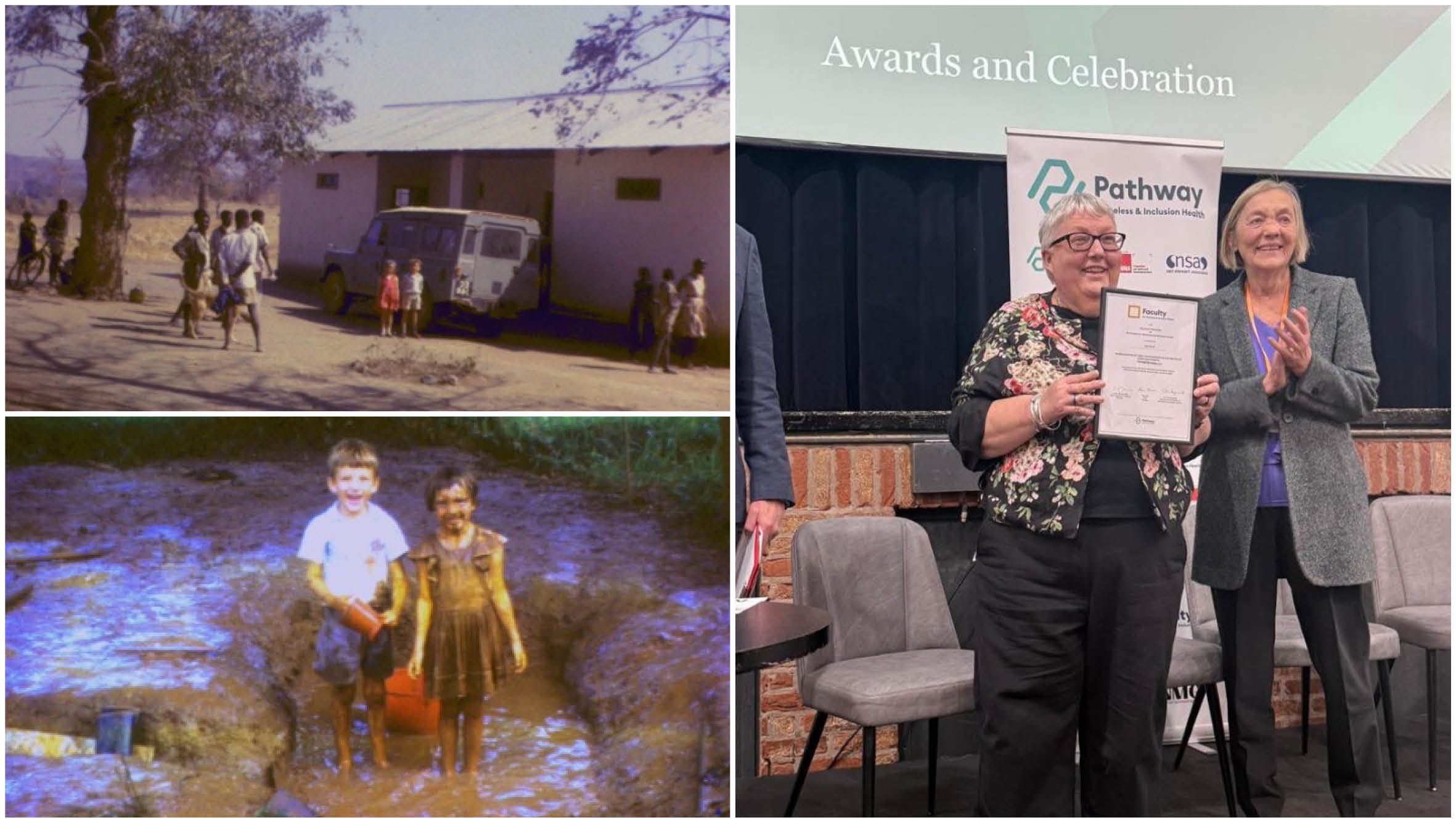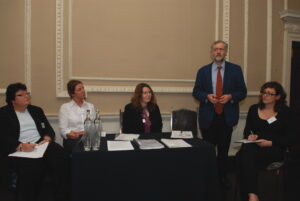A Career in Inclusion Health
24 April 2025 | Jane Cook QN
Some of my first memories are red false noses drying on a kitchen windowsill in our home in the Zambezi valley in Zambia where we were living while my dad was working as a leprosy specialist for a global health charity.
I later got to understand that the work he did helped to transform the lives of many people, in both Africa and India, who experienced so much stigma and discrimination. They were identifiable as having leprosy due to their looks with clawed hands, depressed noses and no eyebrows. My dad operated to restore noses, eyebrows and hands so they could be part of society and also find employment.
When I was six, we moved to Zimbabwe where I quickly became aware of apartheid and saw my parents stand against apartheid, later becoming aware of being followed by the police. During my teenage years my dad was involved in setting up clinics throughout the poorer areas of Bulawayo, Zimbabwe’s second largest city. These provided accessible health care that would reduce maternal and child mortality and improve the health of families through preventative interventions such as measles vaccinations which were a major killer of children.
Looking back, I can see how these early experiences influenced my work in inclusion health when I became a nurse in the east end of London, then training as a health visitor, then 40 years ago starting work in the field of inclusion health. It was a natural fit for me.
Jane Cook QN Top: Jane and her twin visit a rural clinic with their father; bottom: Jane and her twin in Africa; right: Jane winning an award
Top: Jane and her twin visit a rural clinic with their father; bottom: Jane and her twin in Africa; right: Jane winning an awardI commenced working in inclusion health in a 320 bedded men’s hostel in Westminster where there was a clinic room and sick bay with a local GP and psychiatrist holding weekly clinics. The hostel was run by a charity and had originally been a snooker table factory.
From there I moved back to the NHS to work in a 120-bed men’s night shelter. The shelter had been taken over by Southwark council after an undercover reporter filmed conditions there when it was run by a member of a gang who were friends of the Kray brothers. Originally there was a bar, restaurant and dance floor where the Kray brothers were entertained. The owner would collect the rent on a Friday. Once Southwark council took over the building it was renovated with more showers and toilets but was still very basic in the provision for residents. Other nurses were based in other hostels in Lewisham, Southwark and Lambeth and this was the start of what became the Health Inclusion Team which is still functioning to this day.
Over 40 years I have been involved in the delivery of and in the designing of health care for individuals, families and communities who face exclusion. This has included single people, families, Travellers, asylum seekers, unaccompanied minors, vulnerable migrants and sex workers. It has been fulfilling and rewarding with opportunities to work in partnership with both statutory, voluntary and faith organisations to deliver innovative work that has had an impact on the lives of many. I have also had the honour to work with some inspiration practitioners through the Homeless and Inclusion Health programme at the QICN and the London Network for Nurses and Midwives.
J.E. Cook, Queen’s Nurse, Complex Case Manager, Groundswell
Notes:
In March 2025, Jane was awarded a Fellowship by Groundswell in recognition of her outstanding career as an inclusion health nurse
History of the QICN’s Homeless and Inclusion Health Programme:
In 2007, Homeless Health Nurses Jane Cook and Dr Jane Gray OBE met Rosemary Cook CBE (then Director of the QICN) to explore the potential for a national network of homeless health nurses, facilitated by the QICN. The two nurses had already been providing voluntary support to a large cohort of homeless health nurses, but they recognised the need for a more formal structure.
The new network was officially launched at homelessness social enterprise The House of St Barnabas in London in November 2007, with Islington MP Jeremy Corbyn as a speaker, alongside Jane Gray and QNI Fellow Pippa Bagnall.
Over the years the network has attracted significant funding from the Big Lottery Fund, John Paul Getty Jr Foundation, Merchant Taylors Company, Monument Trust, and Oak Foundation to support nurses with development opportunities, including learning and networking events, forums, conferences, resources, national advisory groups and policy work. Today, the network is home to nearly 3000 community nurses and allied health professionals who are working to improve the health of marginalised groups. Join the free network here.

Photo above at the launch of the HIH programme: l – r: Jane Cook, Pippa Bagnall, QICN Fellow; Kate Tansley, HIH Programme Manager; MP Jeremy Corbyn; Alice Evans.

 Back to Blog
Back to Blog